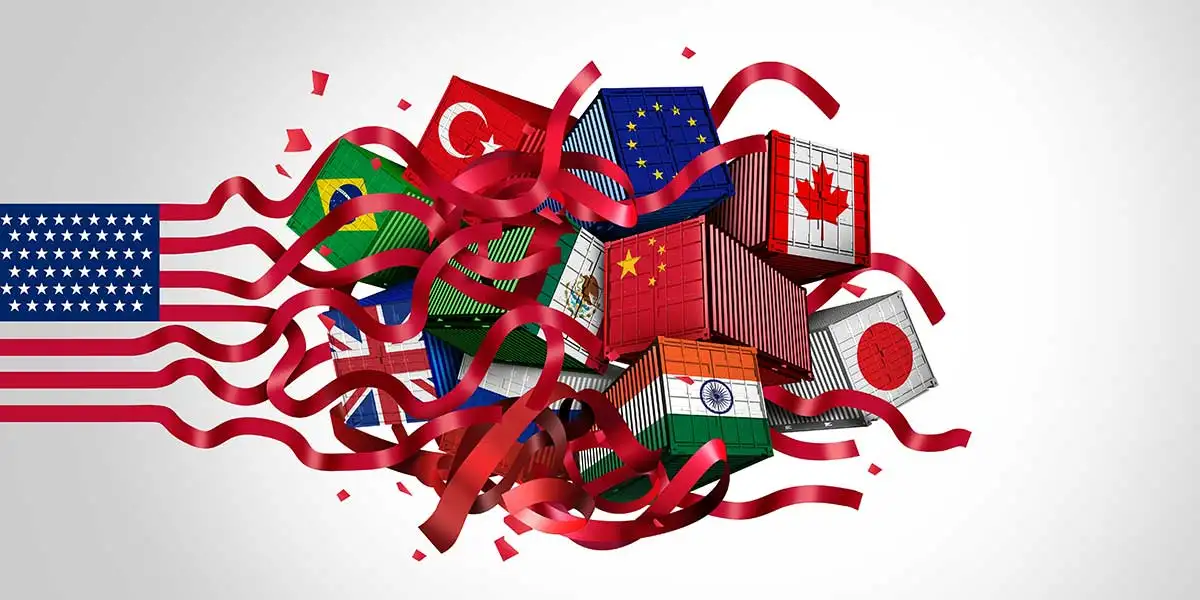
May 8, 2025
Blog Tariff Turmoil: How U.S. Trade Policy Is Reshaping Global Manufacturing
The tariffs imposed by the U.S. have impacted the global supply chain, leading to a gap in supply and demand. In addition, China faces up to 245% tariffs on products subject to Section 301, while the rest of the countries face only a 10% baseline tariff for 90 days. Various industries, such as automotive, semiconductor, aerospace, electronics, and others linked to the manufacturing sector, have been affected by these tariff changes, resulting in an increase in the price of finished products. Moreover, due to the uncertainty on how tariffs will be imposed or postponed in the coming months, the manufacturers are also assessing and working on various strategies to reduce the impact of tariffs on overall company performance.

Source: TradeImeX
China witnessed a sharp decline in its manufacturing facilities at the start of the second quarter due to high tariffs imposed by the U.S. According to the National Bureau of Statistics, the purchasing managers’ index (PMI) - a key measure of industrial output was down to 49.0 points in April. Due to tariff uncertainty, the businesses lowered their inventories and paused production. However, China plans to offer a stimulus package to curb the economic slowdown, and it is working on new policies that will be rolled out in the second quarter. These initiatives will temporarily assist the country in maintaining a stable economy.

Source: U.S. Census Bureau
Japan exports more than 1.5 million vehicles a year to the U.S. The auto companies, including Mazda and Honda, have been significantly impacted by the tariffs. The businesses are reassessing supply chains and production costs to reduce further impact. According to CEIC Data, in March 2025, the country saw an overall decline of 1.1% in industrial production and 8.4% in the auto sector compared to March 2024. To mitigate the tariff impact, manufacturers have reduced their production and will make future decisions based on the evolving tariff rates. Japan is one of the countries in talks with the U.S. for trade deals to overcome the high tariffs. As of May 2nd, 2025, there was a discussion for trade negotiations between the U.S. and Japan for different industries and products, including the auto sector.
As the tariffs hit the manufacturing sector, companies are working on various strategies, such as cost-cutting, expansion of production facilities, and aiming at domestic manufacturing to mitigate the impact. Various manufacturing companies have already announced investing more in the U.S., such as:
To stay competitive in this evolving environment, companies must adopt a more resilient and agile approach to operations.
Recommended Actions:
BCC Research provides trusted, data-driven intelligence that helps manufacturing companies navigate global trade volatility. Our insights are designed to support decision-makers as they assess market shifts, cost implications, and competitive positioning in a changing world.
Our Services Include:
In a world of growing trade uncertainty, BCC Research offers a steady hand to help you turn disruption into direction.
Keep an eye out for upcoming industry-specific insights on the ongoing trade war.

Vijay Bang is an experienced professional with nearly seven years of industry experience in research and analysis, specializing in technology research. He has experience in multiple domains, such as semiconductor & electronics, manufacturing, information & communication technology, and automotive. He supports his team in designing research studies, gathering data, and performing analysis, ultimately providing clients with actionable insights and recommendations based on their unique business needs. Academically, Vijay holds a master’s degree in finance and a bachelor’s degree in computer science engineering.

We are your trusted research partner, providing actionable insights and custom consulting across life sciences, advanced materials, and technology. Allow BCC Research to nurture your smartest business decisions today, tomorrow, and beyond.
Contact UsBCC Research provides objective, unbiased measurement and assessment of market opportunities with detailed market research reports. Our experienced industry analysts assess growth opportunities, market sizing, technologies, applications, supply chains and companies with the singular goal of helping you make informed business decisions, free of noise and hype.